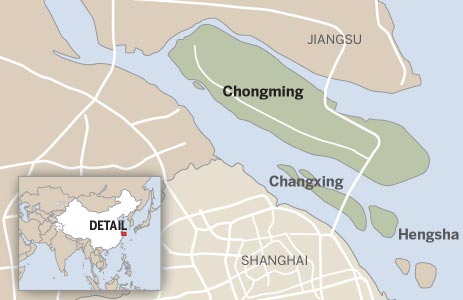 |
|
[Photo provided to China Daily] |
Agriculture now accounts for just 0.39 percent of the city's GDP. As part of the master plan, the Chongming government plans to raise its field area of ecological agriculture from the current 31 percent to more than 90 percent in 2020. Given that there is limited farmland on the island, the focus would be on quality instead of quantity. Creating the island's own brands is another part of the plan.
The tourism industry would have a role to play in the island's growth as well, Wu said.
"Abandoned homes and old farm cabins have already attracted some artists. In future it is possible that farmers' homes will be used to house artists and crafts people."
Gu Huiming, director of the district planning and land bureau, said Chongming's landscape will follow the traditional Chinese style with abundant waterways on the island as the foundation. The island's small and rustic villages, which are made up of homes featuring traditional East China architecture, will continue to flank the meandering waterways, he said.
"We won't build big buildings and broad roads. Instead, we will have more small houses tucked away in the forests and along narrow pathways through the fields.
"If we succeed, Chongming will be a good example of how an ecological island can accommodate a large population. We will become the only place in the world to achieve this."